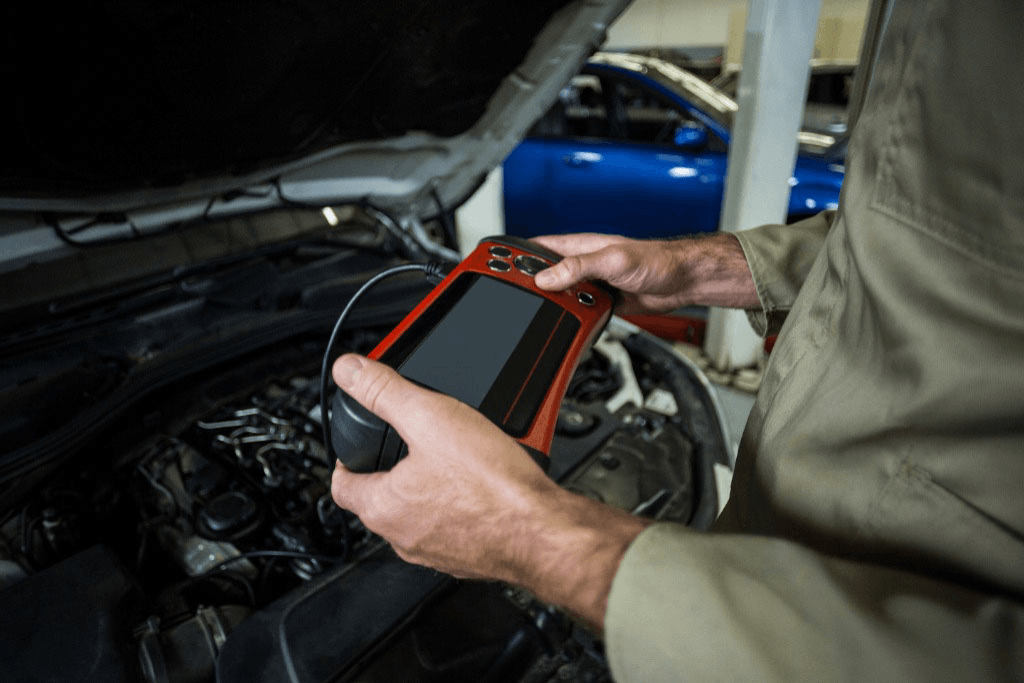Maintenance Differences Between Gas and Electric Cars (PDF)
As electric vehicles are mechanically simpler and more electronic, they need less routine maintenance than gas-powered vehicles. However, drivers should still be aware of nuances in EV maintenance.
 You’ll see a lot of differences if you drive an electric vehicle versus a gas-powered vehicle when you take it to the shop. Tesla advertises its vehicles as eliminating the need for service, claiming they eliminated oil changes and other common gas-drivetrain maintenance responsibilities forever.
You’ll see a lot of differences if you drive an electric vehicle versus a gas-powered vehicle when you take it to the shop. Tesla advertises its vehicles as eliminating the need for service, claiming they eliminated oil changes and other common gas-drivetrain maintenance responsibilities forever.
Due to their technical complexity, EVs do have some maintenance and service nuances. EVs might be maintained by over-the-air software updates. However, if an EV needs to be repaired, it could take much longer. Their batteries are also complex, and replacing them might be costly.
Keeping an electric vehicle on the road differs from driving a gas-powered vehicle in the following ways:
Maintenance Costs
Over the course of five years, EVs require less maintenance, with an average cost of $4,246 compared to $4,583 for gas-powered cars, according to a Kelley Blue Book assessment.
Car Fluids
A gas-powered vehicle’s engine oil and oil filter should be changed every few thousand miles, according to automakers. Electric vehicles, on the other hand, do not have engine oil since they are powered by electric motors, so you don’t need to worry about changing it. They also have fewer moving parts than regular cars.
Besides engine oil, there are plenty of other fluids in traditional internal combustion engines to monitor. EVs are essentially fluid-free, but they have some nuances. For example, Tesla’s transmission has a more simple design that requires infrequent filter changes. Door hinges still need to be lubricated, and brake and window washer fluids are also still needed.
As EVs only require electricity, owners don’t need to worry about fuel additives, and compounds added to gas tanks to clean engine parts.
Technology
The EV is leading the charge as vehicles become more electronic and technologically advanced. With EVs, software updates and infotainment updates are handled via over-the-air upgrades, though automakers are still figuring out how to do that. They’re essentially computers on wheels.
Tesla can unlock additional performance from an owner’s vehicle via over-the-air software updates. Polestar and Audi have also explored this concept. EV owners usually pay for performance upgrades.
Battery Maintenance
Unlike gas-powered vehicles, electric cars have a potentially higher cost for battery replacement. While it’s still early days for the EV transition and regular battery replacements can be expensive (some estimates suggest as much as $15,000), new EV drivers needn’t worry because of this.
In general, EV battery replacements are referred to once an older electric car enters the used market. Therefore, the battery’s health and state of charge are important metrics to determine if a second or third owner should expect a costly battery replacement.
Breaks
EVs benefit from regenerative braking, which means the pads and rotors need to be changed less often while, typically, owners of gasoline-powered cars change their pads and rotors every 20,000 to 50,000 miles.
Repair Cost
EV repairs may require unique tools and equipment, electronics such as sensors can be expensive, and there are fewer technicians specializing in EV repair right now. Kelley Blue Book estimates that over the course of five years, electric vehicles will incur repair costs of approximately $1,712, up from $1,695 for gas-powered vehicles.
Similarities
For both types of vehicles, replacing worn-out suspension parts or aging headlights is normal. In fact, EV suspensions might actually wear out more quickly due to the battery’s weight.





